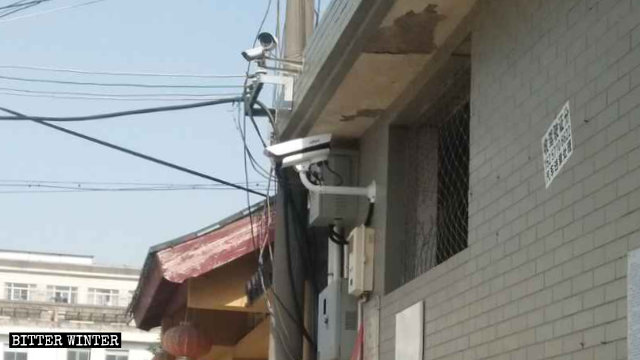Invasive high-tech surveillance equipment, installed even in public toilets, is used to monitor and control China’s residents every step of their way.
by Lin Yijiang
When home becomes a prison
“I spent most of my savings on a new apartment, but now it feels like I live in prison. I have to pass through layers of barbed wire, always monitored by surveillance cameras throughout my residential community, and have to have my face scanned to enter it,” complained a community resident in Luoyang, a city in the central province of Henan.
In May, the Notice on the Installation of Access Control System was posted at the entrance to the community. “As a follow-up to the government’s call to build safe residential communities,” the notice read, “the remote unmanned management model would be installed to standardize the management of the community.”
Access to the community is now controlled by a system that is equipped with facial recognition features, and it is connected to the national emergency services and the local Public Security Bureau.
“The access control system is proclaimed to be installed for the sake of residents’ safety, but I feel like I’m caged. Moreover, the system is connected to the Public Security Bureau,” another resident of the community expressed her dissatisfaction. “Ever since the system was installed, people have to present their IDs to enter. To get access cards for each member of my family, I have to provide their names and information. Otherwise, we’ll be kept out of our home. Living in China means no privacy,” the woman explained.
“Smart” toilets with facial recognition
Facial recognition technology has been installed in all imaginable places: people need to scan their faces even when they want to use a public toilet. In October, “smart” public toilets that require facial scans to dispense toilet paper were introduced in the Xiaoshan district of Hangzhou, the capital of the eastern province of Zhejiang. The system records the number of toilet users, noting their ID information through facial recognition technology. The system is also connected to the Public Security Bureau’s network.

In an Hangzhou-administered village, the population of which is less than one thousand, the number of surveillance cameras has increased to 500 this year, from 300 in 2018. Surveillance cameras equipped with facial recognition devices have been installed at major intersections.
“We’ve installed 35 such facial recognition cameras throughout our village. No area or corner is spared. No privacy is allowed,” the village head boasted to residents, disregarding the fact that their privacy and rights have been violated. The official added that the ID information of those with police records, including their photos, fingerprints, and DNA, had been entered into a government database. If they pass by the areas covered by the facial recognition equipment, they may be arrested by the police in ten minutes.
High-tech surveillance used to persecute the religious
The requirement to install high-tech surveillance systems in places of worship has put people of faith in an even more dire situation, as crackdowns against them escalate across China.

A believer from a house church in Hangzhou told Bitter Winter that this is very worrying since her church’s congregation can no longer find a safe place for meetings. She said that 106 surveillance cameras were installed in her community in April, regular doorbell at the entrance replaced with a smart lock.
“Some brothers and sisters have police records because they had been arrested for their faith. Reluctant to show their ID cards, they cannot enter my community if they want to join us for meetings. We haven’t been able to have services together for five weeks,” the woman said in frustration.
A member of The Church of Almighty God from Longyan city in the southeastern province of Fujian recounted to Bitter Winter how she was followed and arrested by the police in August. During interrogation, an officer told her aggressively that one of the reasons for the installment of surveillance cameras is to catch believers. The woman continues to be under surveillance to this day.
“Beep, beep, beep,” a metal detector goes on incessantly every Friday afternoon at the entrance to Hangzhou Mosque in Zhejiang Province, while security personnel and police officers are checking everyone who wants to enter for worship service. Believers’ belongings are examined, and everyone is subjected to thorough body searches, their faces and ID cards are required to be scanned.
“Too much surveillance here: everywhere I go, I just can’t evade it, as if I were a suspect,” a local Muslim complained.
As the security systems are connected to the Public Security Bureau’s network, anyone who has been blacklisted by the state may be arrested in no time.
Source: Bitter Winter












